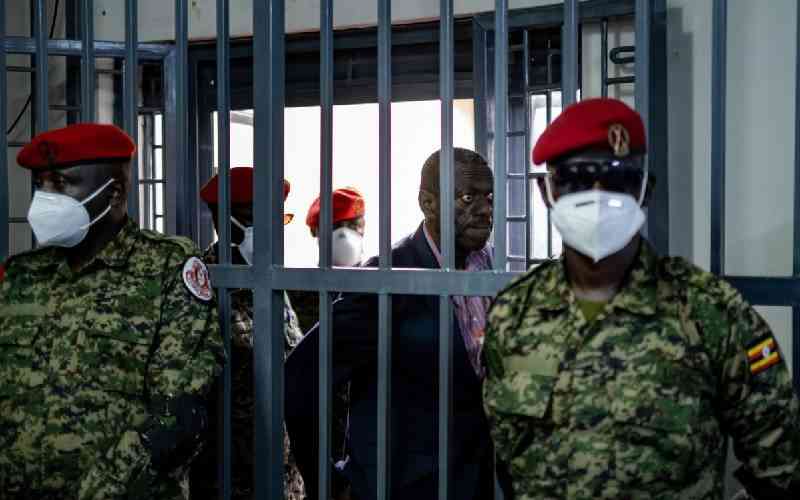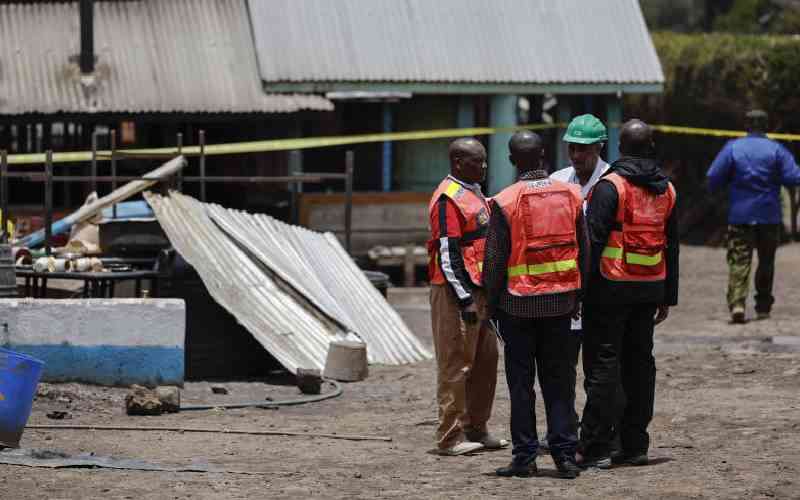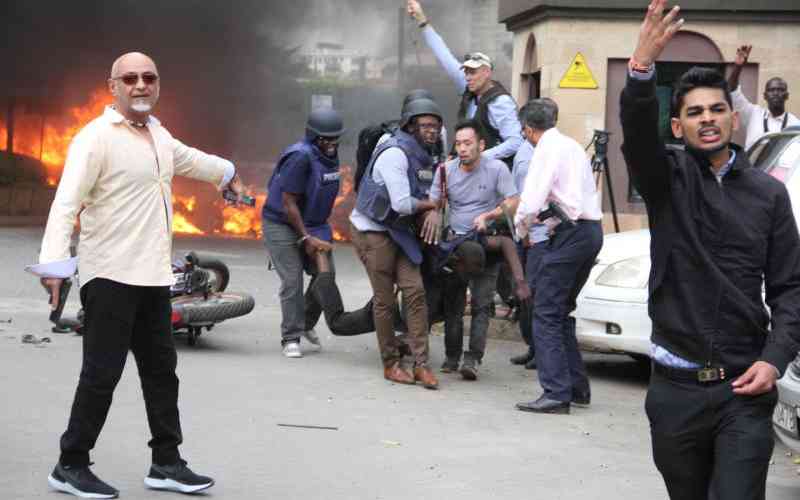BY LINAH BENYAWA
Nothing is sacred anymore. On January 29, when mourners congregated at Elizabeth Mjomba’s home in Miritini, Mombasa, their mission was simply to condole the family and mobilise enough money to afford the deceased a decent burial.
And after digging deep in their pockets, they collected enough money to pay the mortuary fee and finance other burial arrangements as they fine-tuned their plans to inter the remains a day later. But all their planning went to waste.
Just as they went to sleep, Mombasa’s deadliest gangsters, the 40 Brothers, came calling.
They were not coming to pay their respects to the deceased. Death had brought them an opportunity, which was too juicy to ignore.
The mourners got the shock of their lives when the criminals raided their home. They were armed with pangas and other crude weapons when they ordered everyone to lie down.
They then ordered the moaners to surrender all the money they had in their pockets, cell phones and all other valuables.
The deceased’s brother, Stanclause Koska, recounts how the gang demanded for the money they had contributed for the funeral budget. He says the gang was so ruthless that they even injured some of his relatives who later died in hospital.
Unlucky group
Majority of those injured were men who opted to sleep outside the house, while the women got lucky as they had locked themselves inside at the time of the attack.
The incident traumatised the whole family as they were forced to look for more funds to offset mortuary bills.
"We were moaning the death of my sister Elizabeth. Well-wishers had given us some cash donations to offset hospital the bill because that was quite high. Unfortunately, we were faced by a double tragedy when I lost my brother-in-law following the raid," says Koska.
The burial had to be put off until February 18 as the family was confronted with more deaths.
Koska says the hospital and mortuary bills had increased following the tragedy as the family was forced to contribute more funds for the two burials.
Livingstone Mjomba, the deceased’s husband, is still traumatised because even after reporting the incident at Changamwe Police Station, no suspects have been arrested.
Stay informed. Subscribe to our newsletter
The authors of the family’s misfortune, the 40 Brothers, is a criminal gang which operates within Mombasa County.
The gang uses crude weapons to visit terror on victims. They are known to rape female victims and maim others before stealing from them.
Mr Abdulraham Abdalla, a member of Kisauni Community Policing says the group has been terrorising Mombasa residents for quite sometime. He says although some of its members have been lynched by angry residents, it is believed to recruit more criminals to sustain its campaign of terror.
"Forty brothers is a criminal gang formed by members from different areas within Mombasa County. It is said that they used to assemble in Changamwe area where they would strategise on where, when and how to steal," notes Abdalla.
He explains that the gang was formed in 1998 and was at the time notorious for terrorising and raping young girls before stealing from homesteads.
Gang’s hideouts
The name 40 Brothers was coined because when the criminal gang was formed, it had 40 members. But it is believed the membership has grown, attracting criminals from the region and has appointed leaders in every village tasked with spying on the residents and to plot how to steal from them. Abdalla says the gang used to hide in caves in Mshomoroni area, Kisauni District whenever they were on the run from the police.
"They are said to wear police uniforms during their attacks in which they target residential houses mostly. They are armed with pangas and some have guns. Those who resist are killed," he adds.
But Adalla says majority of the gang leaders were lynched by angry residents who were tired of being terrorised. However, their ringleader, who is believed to reside in Likoni, has been recruiting new members.
To confuse security agents and avoid detection, the gang has devolved and is said to operate in several smaller groups, in different neighbourhoods. "They go in groups to execute their operations. This is one of their plans to trick people that the squad does not exist anymore, and many of us believe that they are no longer there," he explains.
But Kisauni OCPD Julius Wanjohi says he has not encountered the gang yet since he was posted to the station early last year.
"I used to hear about the 40 Brothers but no victims have reported to us. It is very difficult to verify reports concerning them and say if they exist," says Wanjohi.
The gang is said to sometimes operate using boats, which according to Abdalla, are used to ferry gangsters to the targeted areas. A few gang members are left to man the getaway boats.
"In areas where they cannot use boats, they travel in groups and assemble before attacking their target. They only spend less than an hour during their operations," he explains.
Ms Betty Sharon of Coast Women in Development programme says once the gang attacks a house, they lock all the doors from outside. While some keep vigil outside the others steal valuables.
"They mostly target Swahili houses especially in Mshomoroni, Mtopanga, Kongowea and Bamburi, where they have spies who identify the houses to be raided," says Sharon. They hide the stolen goods in caves.
Sharon says early last month, there was an incident where the 40 Brothers robbed a man in Mtopanga area after hitting him on the back using crude weapons.
"The man had reached home from work and was parking his car outside his house when the gang blinded him with a spotlight before attacking him with pangas. They stole everything. He was rushed to the hospital and got treated," she adds.
Although the OCPD says that he has not encountered the criminal gang, Sharon insists the gang exists, and blames police for laxity.
"That gang still exists. Police should be more serious in dealing with it," she says.
 The Standard Group Plc is a
multi-media organization with investments in media platforms spanning newspaper
print operations, television, radio broadcasting, digital and online services. The
Standard Group is recognized as a leading multi-media house in Kenya with a key
influence in matters of national and international interest.
The Standard Group Plc is a
multi-media organization with investments in media platforms spanning newspaper
print operations, television, radio broadcasting, digital and online services. The
Standard Group is recognized as a leading multi-media house in Kenya with a key
influence in matters of national and international interest.
 The Standard Group Plc is a
multi-media organization with investments in media platforms spanning newspaper
print operations, television, radio broadcasting, digital and online services. The
Standard Group is recognized as a leading multi-media house in Kenya with a key
influence in matters of national and international interest.
The Standard Group Plc is a
multi-media organization with investments in media platforms spanning newspaper
print operations, television, radio broadcasting, digital and online services. The
Standard Group is recognized as a leading multi-media house in Kenya with a key
influence in matters of national and international interest.





